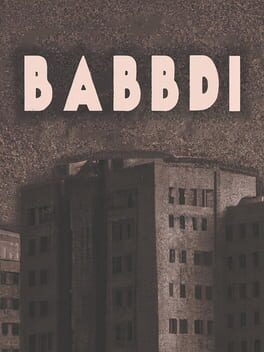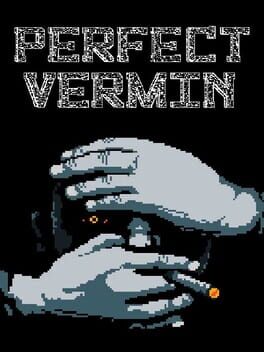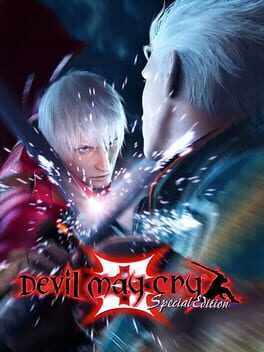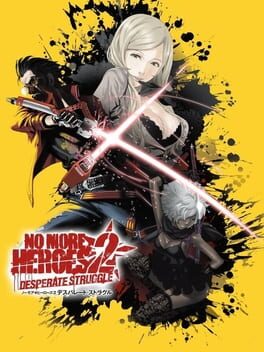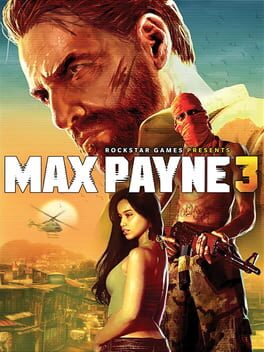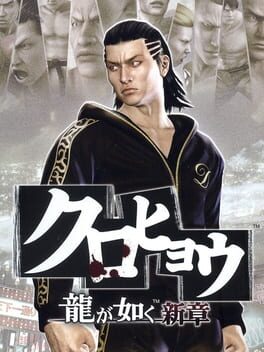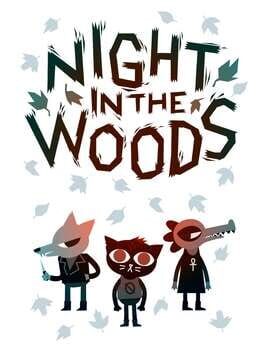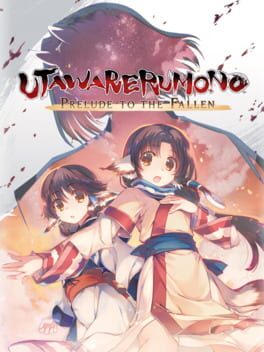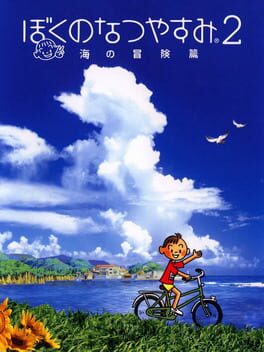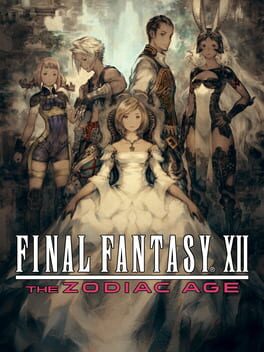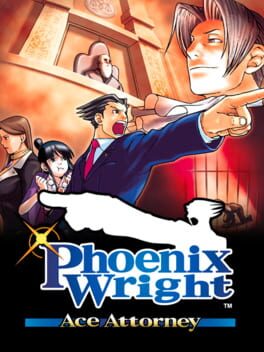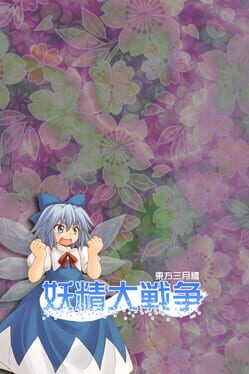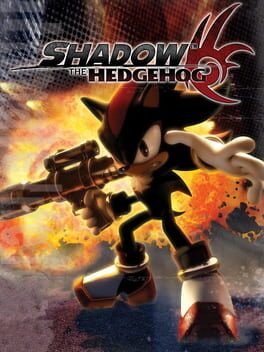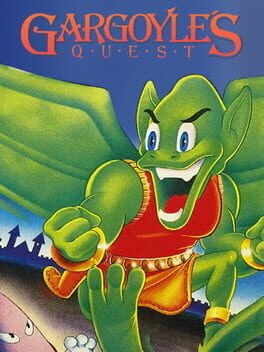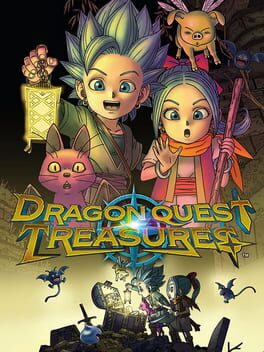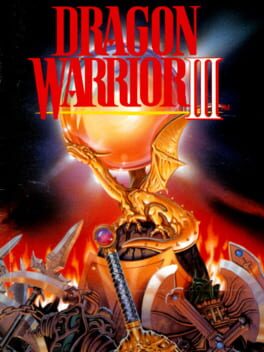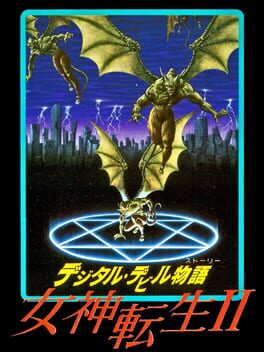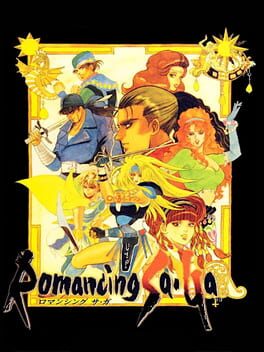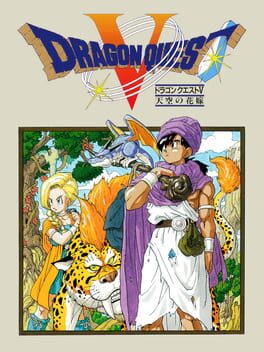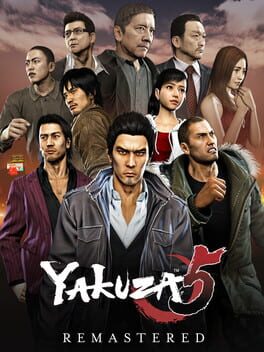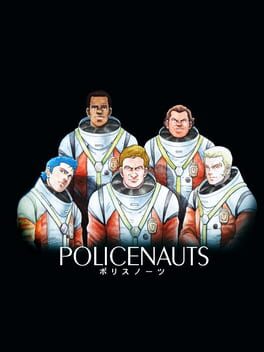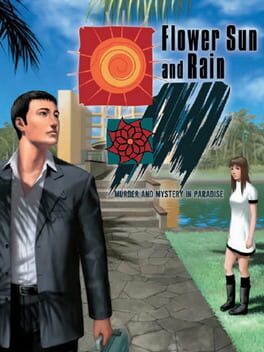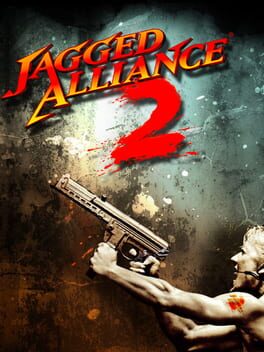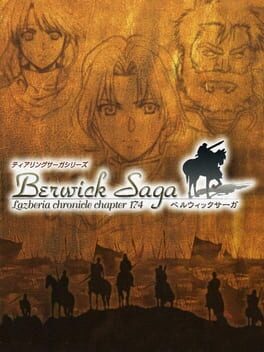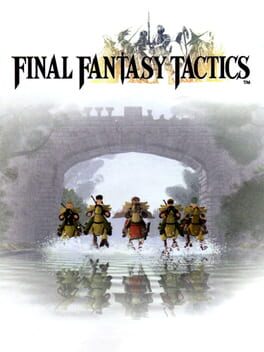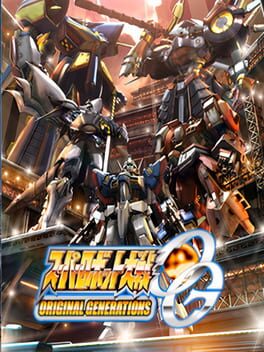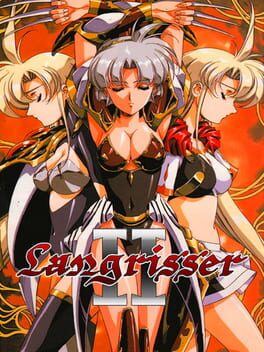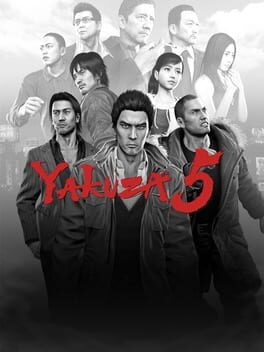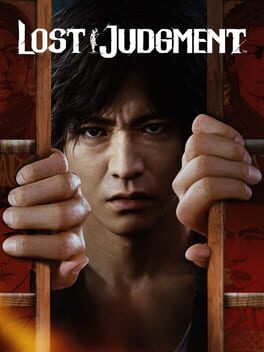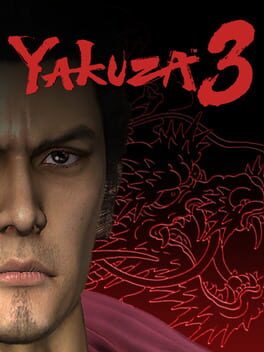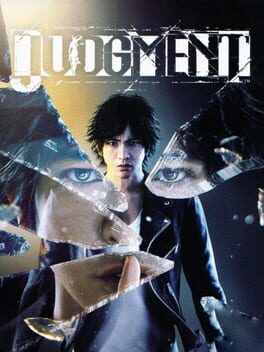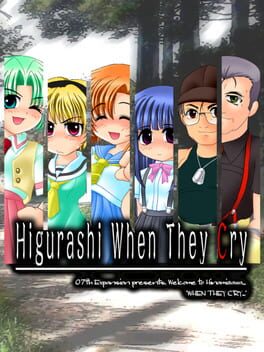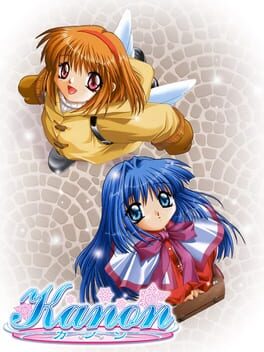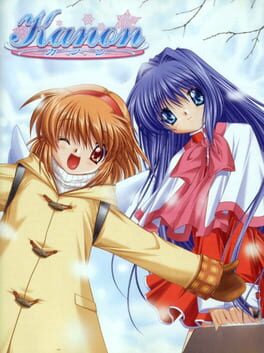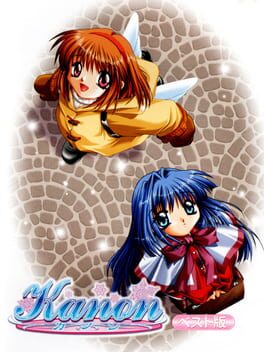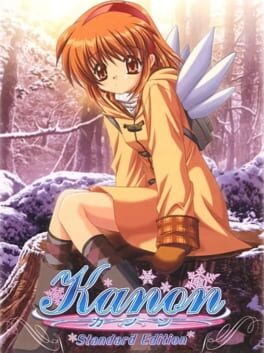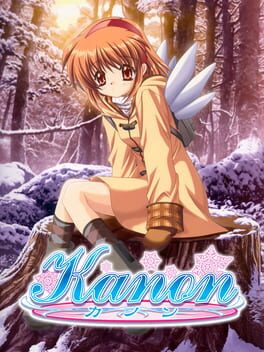420 reviews liked by Oshha
Games that tell stories only capable of being relayed through the medium of gaming will always hold a special place in my heart. Since my first encounters with video games as a whole, I've never quite found any method of storytelling to even compare to it. Sure, the occasional film or manga or what have you might catch my attention, but those I hold at the peak of any other medium don't really come close to the experiences I've had with gaming.
Return of the Obra Dinn has once again solidified this idea for me, and it does so in such a way where I feel that everything within the experience is deserving of commendation. The actors, writing, art, music, and everything all together unite for an extremely fleshed out and cohesive experience that held my attention the whole way through. I believe this holds true for much of the game's playerbase due to the incredible completion rates seen on each of the achievements. Return of the Obra Dinn manages to create a very unique gameplay loop I haven't quite seen elsewhere, it's an incredibly fresh and engaging experience that I feel anyone with a brain could hold appreciation for. It might not be a grand story in comparison to other titles of today, but it sure as hell is a good one, a GREAT one.
A game that will constantly have you thinking, theorizing, trying new things, finding new angles, and most importantly, keeping you engaged following through its bizarre and beautiful storytelling. This is a game that I believe couldn't and shouldn't be passed up, if you're interested, play it. You won't regret it.
Return of the Obra Dinn has once again solidified this idea for me, and it does so in such a way where I feel that everything within the experience is deserving of commendation. The actors, writing, art, music, and everything all together unite for an extremely fleshed out and cohesive experience that held my attention the whole way through. I believe this holds true for much of the game's playerbase due to the incredible completion rates seen on each of the achievements. Return of the Obra Dinn manages to create a very unique gameplay loop I haven't quite seen elsewhere, it's an incredibly fresh and engaging experience that I feel anyone with a brain could hold appreciation for. It might not be a grand story in comparison to other titles of today, but it sure as hell is a good one, a GREAT one.
A game that will constantly have you thinking, theorizing, trying new things, finding new angles, and most importantly, keeping you engaged following through its bizarre and beautiful storytelling. This is a game that I believe couldn't and shouldn't be passed up, if you're interested, play it. You won't regret it.
Tree Simulator 2020
2019
The words "tree simulator 2020" and "unrivalled kino" are actually synonyms in the Oxford English dictionary.
When I opened "tree simulator 2020", my eyes were blessed with the greatest graphics known to man. My room was lit up with the amber glow of the gorgeous American sunrise on a sturdy poplar evergreen.
When I say you could get 1000+ hours of gameplay out of this, it's a damn understatement. You would have to be a fool to underestimate the cultural impact "tree simulator" will have on society as a whole for years to come.
This is the ideal video game. No liberal "people" of color, "woke" politics, nasty feminist agenda or leftist commie rhetoric. Just mother nature, as the one true Christian god intended.
When I opened "tree simulator 2020", my eyes were blessed with the greatest graphics known to man. My room was lit up with the amber glow of the gorgeous American sunrise on a sturdy poplar evergreen.
When I say you could get 1000+ hours of gameplay out of this, it's a damn understatement. You would have to be a fool to underestimate the cultural impact "tree simulator" will have on society as a whole for years to come.
This is the ideal video game. No liberal "people" of color, "woke" politics, nasty feminist agenda or leftist commie rhetoric. Just mother nature, as the one true Christian god intended.
Babbdi
2022
Perfect Vermin
2020
i dont know what the hell happened for this game to be released after the second but it's kino...
improves on everything that makes the first game great with the storyline that the series deserves. the central plot primarily focusing on arkham and lady really accentuates the familial rivalry between dante and vergil, and how they represent both sides of their bloodline, with dante finding his path against vergil through his opposition of arkham. this game turns dante into a genuinely great character while adding a ton of charm that the previous more stoic renditions didnt show. even if the story in this game sucked, the cutscenes of dante taunting every fucked up boss or side character that wants to kill him would make this game worth playing
the combat system dmc3 offers is impressively complex as well, being a huge improvement from the previous games while also maintaining what makes the hack and slash of dmc great. after the first playthrough, i feel like i've explored maybe 30% of the combat in this game, with the variation of skill sets and weapons with separate attack patterns, you could play though 10 times and still not explore everything the combat offers.
dmc2 tosses a random boss into every level that says no word, makes no sense, and can be completely kited and shot dead with dantes guns in a couple mintues. dmc3 has bosses every few missions that are actual personalities that make sense to the setting and have reason to contest dante, with completely different attack patterns and ways to be beaten. almost none of these bosses can be beaten on first try (maybe they can I might just be #ass), but the rinse and repeat of learning the fight pattern and getting to the point of beating them always felt warranted and incredibly deserving. the vergil fights are especially fantastic, as he initially feels the most "doable" for dante, as he's less physically demanding than most the bosses, but as you begin each round with him, you realize how hard he outclasses dante in comparison to every other boss. each of these fights feels like a genuine duel of brothers trying to one up each other, which makes the final encounter feel incredibly cathartic.... its peak
also few scenes go harder than dante and vergil swapping swords THROUGH arkham for a final barrage, just to finish the fight with both of them taking a final shot with ebony & ivory...
JACKPOT
improves on everything that makes the first game great with the storyline that the series deserves. the central plot primarily focusing on arkham and lady really accentuates the familial rivalry between dante and vergil, and how they represent both sides of their bloodline, with dante finding his path against vergil through his opposition of arkham. this game turns dante into a genuinely great character while adding a ton of charm that the previous more stoic renditions didnt show. even if the story in this game sucked, the cutscenes of dante taunting every fucked up boss or side character that wants to kill him would make this game worth playing
the combat system dmc3 offers is impressively complex as well, being a huge improvement from the previous games while also maintaining what makes the hack and slash of dmc great. after the first playthrough, i feel like i've explored maybe 30% of the combat in this game, with the variation of skill sets and weapons with separate attack patterns, you could play though 10 times and still not explore everything the combat offers.
dmc2 tosses a random boss into every level that says no word, makes no sense, and can be completely kited and shot dead with dantes guns in a couple mintues. dmc3 has bosses every few missions that are actual personalities that make sense to the setting and have reason to contest dante, with completely different attack patterns and ways to be beaten. almost none of these bosses can be beaten on first try (maybe they can I might just be #ass), but the rinse and repeat of learning the fight pattern and getting to the point of beating them always felt warranted and incredibly deserving. the vergil fights are especially fantastic, as he initially feels the most "doable" for dante, as he's less physically demanding than most the bosses, but as you begin each round with him, you realize how hard he outclasses dante in comparison to every other boss. each of these fights feels like a genuine duel of brothers trying to one up each other, which makes the final encounter feel incredibly cathartic.... its peak
also few scenes go harder than dante and vergil swapping swords THROUGH arkham for a final barrage, just to finish the fight with both of them taking a final shot with ebony & ivory...
JACKPOT
Devil May Cry 2: Grasshopper Manufacture edition.
Though I do not particularly enjoy doing this, for this review I will primarily be comparing this game to other titles. I believe this game doesn’t really form its own distinct identity outside of “The Sequel of No Mo Heroes” and as a result it’s really difficult to talk about it as though it were an independent work that stands on its own.
No More Heroes, like many SUDA51 games, is an incredibly multi-faceted work with brilliant commentary on a wide range of topics relating to video games and human life, but No More Heroes 2 lacks any of this clever writing and game design that has made Grasshopper Manufacture such an endearing company up until this time. It makes sense since SUDA51 did not serve as director and his role of writer is somewhat ambiguous as well for this game, and it shows.
In my review of No More Heroes, I specifically focused on the game’s commentary on the repetitive nature of video games and how it uses an intentionally poorly structured game loop to highlight this repetitiveness among other things. This structure is completely changed in this game. Now, you are able to directly go into the rank battles one after another without having to pay the ranking fee. The side jobs are still present in the game, but are completely optional. The annoying unfun side jobs of the original which mirror jobs in real life have been replaced by much funner 8-bit style arcade games. What these changes do is make the game much better paced and better structured from a gameplay perspective, but ruins some of the artistic goals of the original.
This wouldn’t be a problem if the game made up for it with its own ideas and themes, but it does not. This is why I say that this game has no separate identity outside of simply being the sequel of No More Heroes. Its primary theme, revenge and the cycle of violence, is something already present in the original. It is just far less subtle in this game. All the humor, the characters, and the tone of the original is preserved and dumped directly into this one as well. In fact, in some ways this game is even a flanderization of No More Heroes. The sexuality has gone waaay up and so has the general ridiculousness. This game WILL make you look at Sylvia’s breasts and even if you avoid one cutscene with a zoom up on them it will eventually catch you slacking.
Even the core narrative of this game is, frankly, a rehash of the original that lacks any of the deliberate commentary of the original. No More Heroes 2 copies No More Heroes whenever it can and makes reckless changes without really thinking very hard for why the original is designed the way it is. This is why at the top of this critique, I compared this game to Devil May Cry 2. They are actually decently similar games in many ways. Both lack the director of the original game they’re a sequel to, both are far more ridiculous than the original in their events (DMC2 has demon tanks and helicopters and this game has mech battles and weird giant batman parody babies), both are pretty pointless sequels, and both completely misunderstand what made the original good in the first place.
Now of course, DMC2 and this game is not a 1 to 1 comparison. No More Heroes 2 is far better than DMC2 and succeeds in many of the aspects the latter fails, and I honestly might be stretching a lot with this comparison, however I feel like they fall into similar pitfalls.
Despite all of this, I still reasonably enjoyed my time with this game. Even if it does not quite have the wit of the original, it most certainly has its charm, and that may be enough for me. The gameplay is still extremely button mashy but so much fun, Travis is still a loveable jackass, and you’re still able to play with Jeane the cat though she’s gained a bit of weight. Most of the things I enjoyed about this game were already in the original, however. Still, 3 whole extra stars to this game for making playing with Jeane more interactive. Very excited to see what SUDA51 does with her in NMH3!
Though I do not particularly enjoy doing this, for this review I will primarily be comparing this game to other titles. I believe this game doesn’t really form its own distinct identity outside of “The Sequel of No Mo Heroes” and as a result it’s really difficult to talk about it as though it were an independent work that stands on its own.
No More Heroes, like many SUDA51 games, is an incredibly multi-faceted work with brilliant commentary on a wide range of topics relating to video games and human life, but No More Heroes 2 lacks any of this clever writing and game design that has made Grasshopper Manufacture such an endearing company up until this time. It makes sense since SUDA51 did not serve as director and his role of writer is somewhat ambiguous as well for this game, and it shows.
In my review of No More Heroes, I specifically focused on the game’s commentary on the repetitive nature of video games and how it uses an intentionally poorly structured game loop to highlight this repetitiveness among other things. This structure is completely changed in this game. Now, you are able to directly go into the rank battles one after another without having to pay the ranking fee. The side jobs are still present in the game, but are completely optional. The annoying unfun side jobs of the original which mirror jobs in real life have been replaced by much funner 8-bit style arcade games. What these changes do is make the game much better paced and better structured from a gameplay perspective, but ruins some of the artistic goals of the original.
This wouldn’t be a problem if the game made up for it with its own ideas and themes, but it does not. This is why I say that this game has no separate identity outside of simply being the sequel of No More Heroes. Its primary theme, revenge and the cycle of violence, is something already present in the original. It is just far less subtle in this game. All the humor, the characters, and the tone of the original is preserved and dumped directly into this one as well. In fact, in some ways this game is even a flanderization of No More Heroes. The sexuality has gone waaay up and so has the general ridiculousness. This game WILL make you look at Sylvia’s breasts and even if you avoid one cutscene with a zoom up on them it will eventually catch you slacking.
Even the core narrative of this game is, frankly, a rehash of the original that lacks any of the deliberate commentary of the original. No More Heroes 2 copies No More Heroes whenever it can and makes reckless changes without really thinking very hard for why the original is designed the way it is. This is why at the top of this critique, I compared this game to Devil May Cry 2. They are actually decently similar games in many ways. Both lack the director of the original game they’re a sequel to, both are far more ridiculous than the original in their events (DMC2 has demon tanks and helicopters and this game has mech battles and weird giant batman parody babies), both are pretty pointless sequels, and both completely misunderstand what made the original good in the first place.
Now of course, DMC2 and this game is not a 1 to 1 comparison. No More Heroes 2 is far better than DMC2 and succeeds in many of the aspects the latter fails, and I honestly might be stretching a lot with this comparison, however I feel like they fall into similar pitfalls.
Despite all of this, I still reasonably enjoyed my time with this game. Even if it does not quite have the wit of the original, it most certainly has its charm, and that may be enough for me. The gameplay is still extremely button mashy but so much fun, Travis is still a loveable jackass, and you’re still able to play with Jeane the cat though she’s gained a bit of weight. Most of the things I enjoyed about this game were already in the original, however. Still, 3 whole extra stars to this game for making playing with Jeane more interactive. Very excited to see what SUDA51 does with her in NMH3!
The Silver Case
2016
this is probably the most confused i've been about a game so far, about so many of it's aspects, what's its story tried to tell me? how I should even view it's story, it's narrative, how everything about it works?
On one hand i'm given a fantastic visual presentation and unique style that no other game ever had, really good music that just fits brilliantly in every scene. Writing that's so specific yet fascinating with how much it mirrors a real life form of speech a regular person might have with the amount of swears and slurs. And to top off this segment there's genuine peaks of stories like in the entirety of the Parade chapter.
On other i got such an uninteresting first half where I questioned if it's worth going through more of it, often wanting to drop the game for a while. placebo segments that are an absolute drag in their pacing and mindless repetition and every time I had to do them i felt discouraged to boot up the game. There's a lot of characters but it's so hard to keep track of them and remember every single one since you won't know if they will become a major part of the chapter's plot or if they'll be gone forever in the very next scene. It has plathera of moments where I could not understand a single bit of what is even happening as so much of it is presented to the player yet might mean absolutely nothing as you cannot tell if what you're seeing is meant to be a metaphor, forshadowing or just an artistic flair
I genuinely have no idea how I should view this game, this work, this art piece. It's so fascinating and confusing to the point where i'm trying to comprehend so much of it that isn't supposed to even make sense.
And just for that.
I have nothing else but tremendous respect.
On one hand i'm given a fantastic visual presentation and unique style that no other game ever had, really good music that just fits brilliantly in every scene. Writing that's so specific yet fascinating with how much it mirrors a real life form of speech a regular person might have with the amount of swears and slurs. And to top off this segment there's genuine peaks of stories like in the entirety of the Parade chapter.
On other i got such an uninteresting first half where I questioned if it's worth going through more of it, often wanting to drop the game for a while. placebo segments that are an absolute drag in their pacing and mindless repetition and every time I had to do them i felt discouraged to boot up the game. There's a lot of characters but it's so hard to keep track of them and remember every single one since you won't know if they will become a major part of the chapter's plot or if they'll be gone forever in the very next scene. It has plathera of moments where I could not understand a single bit of what is even happening as so much of it is presented to the player yet might mean absolutely nothing as you cannot tell if what you're seeing is meant to be a metaphor, forshadowing or just an artistic flair
I genuinely have no idea how I should view this game, this work, this art piece. It's so fascinating and confusing to the point where i'm trying to comprehend so much of it that isn't supposed to even make sense.
And just for that.
I have nothing else but tremendous respect.
Max Payne 3
2012
Before this review starts, I would like to preface that this is by no means an actual, in-depth critical review of Max Payne 3. I won’t be touching the story or gameplay AT ALL in this, so let that be warned. This is purely about how I feel about Max Payne 3’s portrayal of my region of Brazil and how it affected my enjoyment of it to the point where I just can’t really stand it and think it is one of the most racist video games ever made. I can’t wrap my head around the fact that Resident Evil 5 is frequently cited as a super racist video game when Max Payne 3 is literally right there and does the exact same things that game does!
The average person who played Max Payne 3 will probably not bother to do an inch of research on the country of Brazil, probably thinks Rio is the capital, and believes that it is an absolute warzone hellhole where people get shot on the street constantly. This is the kind of audience Rockstar was trying to appeal to with this game. I do not believe, even for a second, that they made this game out of respect for Brazil. They simply wanted a 3rd world country to throw their white American hero into so he could shoot and kill without a care in the world, because the 3rd world is so lawless, right? They wanted to portray their weird, twisted view of Brazil so much that they even went so far as to scan a thousand residents of the favela of Paraisópolis into the game, acting as backdrop NPCs in the chapters that do take place in the favela. You can kill actual residents of São Paulo in Max Payne 3, which is crazy once you consider how the rest of the game handles this stuff. You can sit there in your little house just outside Little Rock, Arkansas, and get your greasy hands on the controller and shoot at people who were probably paid less than a penny for their faces to be plastered onto enemies. It's the most pure depiction of the average 40-something-year-old American going to a country that doesn't belong to you and killing brown people for fun!
There is so much arrogance in Rockstar's approach to developing Max Payne 3. A huge inspiration for the game was the 2007 Brazilian movie “Tropa de Elite," which is very funny once you learn what that movie is about. It's like Rockstar saw that movie as just an average cool awesome shooter romp through a favela and not as a critique of Brazil’s problems and struggle with violence. I think taking a movie that presents a very thoughtful critique of violence and using it for their little American power fantasy video game is insanely disrespectful. But it’s not like it really matters to the audience for this game. The audience doesn’t know what "Tropa de Elite" is; most of them couldn’t even tell what language Brazil speaks, and most of them probably don’t even know Portuguese is a language. It appeals to the naive, the Americans, who think going to Brazil to shoot at some mixed-race thugs is the coolest thing in the world because they can live out their little soldier hero fantasy.
The depiction of lawful Brazilian citizens, who all seem to hate gringos and be aggressive on sight despite Brazil frequently being cited as one of the most friendly countries to foreigners, is an objectively wrong, offensive depiction. Brazilians do not hate gringos; I, being one myself and being friends with a lot of gringos and foreigners, can personally attest to this. I have been around a lot of São Paulo because I live fairly close to it and there are always gringos around, and no one minds, and in fact, most Brazilians really enjoy helping out gringos or foreigners in any way they can! Rockstar seems to have this weird, twisted idea that since it's a favela and not the clean, corporate building of the Brancos, the people are totally different. The people from the favelas are wonderful people, despite the bad hand most of them have been dealt in life: stuck in poverty, living in run-down buildings on top of other buildings, stacked up so high. They have a resilient spirit; they, to me, represent the Brazilian spirit more than any other group of people in this world, and I respect them deeply for it. I think choosing to depict these people as inherently hostile to Max, the American hero, is so disrespectful to them and their home and the culture they were raised around, and it paints a picture that is absolutely not true. I believe Rockstar chose to depict the favelas like that because it would sell. The depiction of the favelas as lawless wastelands with gangsters and thugs at every corner is the most pure evidence you could find of the ignorance of the average American writer. You can visit a country and study it, see how it is, then go home to your little flat in your little apartment and depict it in a way that would make sense to your audience, which is the American, the one you want to please because they at the end of the day give you money; the citizens of São Paulo don’t really matter in the end much at all, and their input was never needed.
Brazil already gets misrepresented by the world at large, and I am a firm believer that media can affect and alter reality and how people perceive things in significant ways. Rockstar seemed to be drawn in by the allure of Brazil that exists in the minds of only foreigners and not the actual experience of the average Brazilian. The funk, the favela, the scorching sun, the people, the beaches, the drinking, the soccer—everything that people stereotype Brazilians as is present in this game! I don’t feel proud saying this is THE game that takes place where I live, that this is THE game that is supposed to “represent” São Paulo. I personally struggled with my Brazilian identity for a long time because of certain notions and preconceptions people held and still hold against Brazilians, particularly online, which tends to get very very nasty and racist. And I cannot sit here and pretend like I am fine with the way these Americans wrote about my country and my people.
Even when you get to the real villains of the game, the Brazilian UFE and Victor Branco, the game never changes from its weird attitude towards Brazilians. Chapter 12 is literally named “The Great American Savior of the Poor,” and as ironic as Rockstar’s intent may have been while writing that, they characterize Max and Brazilians in such a way that that is actually the case! He stops the Comando Sombra, he stops the UFE, he stops political corruption, and he saves a bunch of favela citizens from getting their organs harvested. He, a white American man, really does become the savior of the poor through this game's absolutely naive and frankly stupidly racist writing. And the critique itself towards the Brazilian police and political world is absolutely shallow and warped. I mean, Victor Branco is kind of a silly caricature of a stereotypical corrupt Brazilian politician, but the game doesn’t really delve any deeper than that, and it frankly makes me quite sad. Just a few years after this game came out, Operation Car Wash started, and honestly, I wish this game had come out during that time frame so they could have developed that plot point further. But then I also worry they would’ve handled it in the worst way possible and made the most Brazilian right-wing propaganda piece video game of all time, and that thought alone sends shivers down my spine. Like Imagine in your head right now a game so right-wing Bolsonaro would probably use clips of it in his 2018 campaign. I already think the game is inherently right-leaning simply because of the way it handles a lot of the subject matter, and I honestly fear what a 2017 Max Payne 3 taking place in Brazil during the Temer era would look like...
If it seems like I have gotten emotional or angry while writing this, it is because I have! I do not live in the city of São Paulo proper; I live on the coast. But I have been to São Paulo quite often in my life due to a few of my relatives living there, and those relatives live in the parts that Max Payne 3 chose specifically to depict. It makes me sad that this is the product that was made; this is what Rockstar chose to depict of my family, my friends, and my country. To the people that live here, to the people that know and love people that live in the world Max Payne 3 chose to take place in, it is a very painful experience to go through again and again. São Paulo is really a beautiful state, and most will never ever get to experience it; only the people that have lived here would really understand how amazing and beautiful it truly can be. But to the average audience that loves Rockstar, all of this is alright and fine by them; they’re never going to feel offended, and they’re never going to have a problem with it. They’re never going to feel their blood pressure rise when the game says something so insanely racist you have to take a step back. They’re never going to wonder how their friends and family are viewed due to the negative connotations being from a favela already carried, made worse by a totally inept and ignorant development team. Because they don’t care. To the average American consumer, it is just another game set in a "shithole," a "warzone," where they get to escape their privileged realities and pretend they’re some sort of hero. Rockstar manages to reinforce every single negative stereotype about Brazil for these people. And they’re going to eat it up; they’ll believe it because they are inherently ignorant. It is a game made for Americans, not for the Brazilian people, and there is nothing more American than pretending to be a badass hero in some “shithole” where the only goal is to kill as many brown people as possible.
I have gone on a few tangents here and there, but I have stated my case. Max Payne 3 is a racist video game, plain and simple. It's not going to beat around the bush and pretend it's because Rockstar is doing it by accident because it honestly feels very deliberate. They had writers approve a lot of this stuff, and it baffles me that at no point a writer went and said how kind of messed up it all is. I will leave a single quote here that I feel perfectly illustrates what I mean by all of this:
“We’d half destroyed São Paulo’s most hallowed place of worship.” A stadium.
The average person who played Max Payne 3 will probably not bother to do an inch of research on the country of Brazil, probably thinks Rio is the capital, and believes that it is an absolute warzone hellhole where people get shot on the street constantly. This is the kind of audience Rockstar was trying to appeal to with this game. I do not believe, even for a second, that they made this game out of respect for Brazil. They simply wanted a 3rd world country to throw their white American hero into so he could shoot and kill without a care in the world, because the 3rd world is so lawless, right? They wanted to portray their weird, twisted view of Brazil so much that they even went so far as to scan a thousand residents of the favela of Paraisópolis into the game, acting as backdrop NPCs in the chapters that do take place in the favela. You can kill actual residents of São Paulo in Max Payne 3, which is crazy once you consider how the rest of the game handles this stuff. You can sit there in your little house just outside Little Rock, Arkansas, and get your greasy hands on the controller and shoot at people who were probably paid less than a penny for their faces to be plastered onto enemies. It's the most pure depiction of the average 40-something-year-old American going to a country that doesn't belong to you and killing brown people for fun!
There is so much arrogance in Rockstar's approach to developing Max Payne 3. A huge inspiration for the game was the 2007 Brazilian movie “Tropa de Elite," which is very funny once you learn what that movie is about. It's like Rockstar saw that movie as just an average cool awesome shooter romp through a favela and not as a critique of Brazil’s problems and struggle with violence. I think taking a movie that presents a very thoughtful critique of violence and using it for their little American power fantasy video game is insanely disrespectful. But it’s not like it really matters to the audience for this game. The audience doesn’t know what "Tropa de Elite" is; most of them couldn’t even tell what language Brazil speaks, and most of them probably don’t even know Portuguese is a language. It appeals to the naive, the Americans, who think going to Brazil to shoot at some mixed-race thugs is the coolest thing in the world because they can live out their little soldier hero fantasy.
The depiction of lawful Brazilian citizens, who all seem to hate gringos and be aggressive on sight despite Brazil frequently being cited as one of the most friendly countries to foreigners, is an objectively wrong, offensive depiction. Brazilians do not hate gringos; I, being one myself and being friends with a lot of gringos and foreigners, can personally attest to this. I have been around a lot of São Paulo because I live fairly close to it and there are always gringos around, and no one minds, and in fact, most Brazilians really enjoy helping out gringos or foreigners in any way they can! Rockstar seems to have this weird, twisted idea that since it's a favela and not the clean, corporate building of the Brancos, the people are totally different. The people from the favelas are wonderful people, despite the bad hand most of them have been dealt in life: stuck in poverty, living in run-down buildings on top of other buildings, stacked up so high. They have a resilient spirit; they, to me, represent the Brazilian spirit more than any other group of people in this world, and I respect them deeply for it. I think choosing to depict these people as inherently hostile to Max, the American hero, is so disrespectful to them and their home and the culture they were raised around, and it paints a picture that is absolutely not true. I believe Rockstar chose to depict the favelas like that because it would sell. The depiction of the favelas as lawless wastelands with gangsters and thugs at every corner is the most pure evidence you could find of the ignorance of the average American writer. You can visit a country and study it, see how it is, then go home to your little flat in your little apartment and depict it in a way that would make sense to your audience, which is the American, the one you want to please because they at the end of the day give you money; the citizens of São Paulo don’t really matter in the end much at all, and their input was never needed.
Brazil already gets misrepresented by the world at large, and I am a firm believer that media can affect and alter reality and how people perceive things in significant ways. Rockstar seemed to be drawn in by the allure of Brazil that exists in the minds of only foreigners and not the actual experience of the average Brazilian. The funk, the favela, the scorching sun, the people, the beaches, the drinking, the soccer—everything that people stereotype Brazilians as is present in this game! I don’t feel proud saying this is THE game that takes place where I live, that this is THE game that is supposed to “represent” São Paulo. I personally struggled with my Brazilian identity for a long time because of certain notions and preconceptions people held and still hold against Brazilians, particularly online, which tends to get very very nasty and racist. And I cannot sit here and pretend like I am fine with the way these Americans wrote about my country and my people.
Even when you get to the real villains of the game, the Brazilian UFE and Victor Branco, the game never changes from its weird attitude towards Brazilians. Chapter 12 is literally named “The Great American Savior of the Poor,” and as ironic as Rockstar’s intent may have been while writing that, they characterize Max and Brazilians in such a way that that is actually the case! He stops the Comando Sombra, he stops the UFE, he stops political corruption, and he saves a bunch of favela citizens from getting their organs harvested. He, a white American man, really does become the savior of the poor through this game's absolutely naive and frankly stupidly racist writing. And the critique itself towards the Brazilian police and political world is absolutely shallow and warped. I mean, Victor Branco is kind of a silly caricature of a stereotypical corrupt Brazilian politician, but the game doesn’t really delve any deeper than that, and it frankly makes me quite sad. Just a few years after this game came out, Operation Car Wash started, and honestly, I wish this game had come out during that time frame so they could have developed that plot point further. But then I also worry they would’ve handled it in the worst way possible and made the most Brazilian right-wing propaganda piece video game of all time, and that thought alone sends shivers down my spine. Like Imagine in your head right now a game so right-wing Bolsonaro would probably use clips of it in his 2018 campaign. I already think the game is inherently right-leaning simply because of the way it handles a lot of the subject matter, and I honestly fear what a 2017 Max Payne 3 taking place in Brazil during the Temer era would look like...
If it seems like I have gotten emotional or angry while writing this, it is because I have! I do not live in the city of São Paulo proper; I live on the coast. But I have been to São Paulo quite often in my life due to a few of my relatives living there, and those relatives live in the parts that Max Payne 3 chose specifically to depict. It makes me sad that this is the product that was made; this is what Rockstar chose to depict of my family, my friends, and my country. To the people that live here, to the people that know and love people that live in the world Max Payne 3 chose to take place in, it is a very painful experience to go through again and again. São Paulo is really a beautiful state, and most will never ever get to experience it; only the people that have lived here would really understand how amazing and beautiful it truly can be. But to the average audience that loves Rockstar, all of this is alright and fine by them; they’re never going to feel offended, and they’re never going to have a problem with it. They’re never going to feel their blood pressure rise when the game says something so insanely racist you have to take a step back. They’re never going to wonder how their friends and family are viewed due to the negative connotations being from a favela already carried, made worse by a totally inept and ignorant development team. Because they don’t care. To the average American consumer, it is just another game set in a "shithole," a "warzone," where they get to escape their privileged realities and pretend they’re some sort of hero. Rockstar manages to reinforce every single negative stereotype about Brazil for these people. And they’re going to eat it up; they’ll believe it because they are inherently ignorant. It is a game made for Americans, not for the Brazilian people, and there is nothing more American than pretending to be a badass hero in some “shithole” where the only goal is to kill as many brown people as possible.
I have gone on a few tangents here and there, but I have stated my case. Max Payne 3 is a racist video game, plain and simple. It's not going to beat around the bush and pretend it's because Rockstar is doing it by accident because it honestly feels very deliberate. They had writers approve a lot of this stuff, and it baffles me that at no point a writer went and said how kind of messed up it all is. I will leave a single quote here that I feel perfectly illustrates what I mean by all of this:
“We’d half destroyed São Paulo’s most hallowed place of worship.” A stadium.
Mechanically reinforces the brutality of MMA within the context of RGG's thematic sensibilities. Flawed combat that utilizes its difficulty curve to make Tatsuya's struggle just that much more worth it. Brushstroke stylization paints a beautiful narrative that places a violence-prone teen through a thorough character arc a lot of people can relate to. Even with some rushed segments in the recent translation, the script's intrigue and emotion are still present. Like Judgment, it's a fundamental understanding of what makes this series tick that allows Black Panther to feel at home with the other Yakuza games.
There's no way I'm gonna lose.
There's no way I'm gonna lose.
Night in the Woods
2017
This review contains spoilers
In the year I came back to my home town, my sister was born.
Most of the friends that I had forgot about me, and what seemed so familiar as a child was now alien. The bus route changed. A new McDonald's opened near my house, and a giant condominium blocked my childhood home's view of the ocean.
The sky was more grey than I remember.
This year I turn 20.
I'm every bit as directionless, confused and angry as I was seven years ago.
I think night in the woods struck a chord with me because of this. When I visit possum springs, it reminds me of when I was 12, in a place that was familiar and different. For me, it's hauntingly nostalgic, and reminded me of a time that I miss dearly.
---
Stuff I liked
---
The pit-a-pat of a pretty bad matte black cat's paws on the roof approaching a rat clad in a snug shrug is interrupted with intermittent grunts of effort.
The sound of everything, from the crunch of autumn leaves, the rubber-like twang of power lines, and sizzling of fresh pierogis.
The echoes of delinquent chatter reverberate throughout an abandoned subway. The scuttling of pets and other small rats (children) overlap with the sound of a sputtering engine of an ancient vehicle in desperate need of repair, a car and driver in no hurry to reach their destination. It's a small town after all.
The soundtrack is soft, the humming of the theramin and synth mimicking the whistle of a chilly autumn breeze. It feels like a lullaby. It's calm. Eerily so. But it feels comforting in its own silly, off-kilter way.
These noises go a long way to making you feel like you're there. It does wonders for the atmosphere of this unknown small town in the middle of nowhere. Historical possum springs. It feels cozy. It feels familiar.
Mae's dynamic demeanors are expressed in the smooth animations of actions and reactions to scenarios and inputs. Each character's body language tells you just enough about each person to know at least a little of what they're like.
The paper cutout feel of the art style makes the game feel homely. Like a children's book. The (smooth?) feeling of it's presentation matches it's wiggly and slick character animations.
It's easy on the eyes.
There's also something about the writing in Night in the woods that makes the world feel lived in. Dialogue feels like something me and my friends would say. An awkward slip of the tongue might inadvertently make another panic. Infuriating passive aggressive back and forths eventually explode into a heartbreaking argument. Poems by selmers. It feels real.
There's attention to detail in every offhanded comment. Fragments of stories of the town's inhabitants and escapades are drip fed to you via Mae's recollections and interactions with random objects in town, big events in the past alluded to throughout the game for you to figure out. Where everybody knows everyone. In possum springs, word gets around.
---
Mild Spoilers
---
Night in the woods is a game about mourning. It's about mourning a loved one, a childhood that left a long time ago, a town that used to thrive, now a shambling corpse of what it once was, a toxic cesspool of broken dreams. A black hole, sucking up all the ambitions its inhabitants had,and spitting them out the other side, listless. Hopeless. Tired. But in this town of nothing, empty town of no renown, people find solace and comfort with each other. There is love to be found, there are friends to be had, in a hopeless town where few can escape, where everything stays stagnant, frozen in time, while everything else changes. There's something about this game and it's themes that I find hopeful.
At the end of everything, hold on to anything.
There's one aspect of the story that really stuck with me, the feeling of needing to escape. Mae couldn't find her place in university. She felt so out of place, that she sacrificed everything her parents worked for to return home. Bea couldn't leave her borderline abusive household because how could she abandon her family? She couldn't go to college because she was poor, because she was dealt a horrible hand in life. Gregg and Angus are actively trying to escape possum springs to find a better life. It's everywhere, and it feels messy. In the transitory period of entering adulthood, I constantly feel like I need to get away from everything, that the weight of my responsibility as an adult is crushing me. Living is messy.
I'm the same age as Mae now. It's scary. But playing this game, feeling lost and confused, was comforting in a way. Maybe if you feel the same you'll like it too.
Most of the friends that I had forgot about me, and what seemed so familiar as a child was now alien. The bus route changed. A new McDonald's opened near my house, and a giant condominium blocked my childhood home's view of the ocean.
The sky was more grey than I remember.
This year I turn 20.
I'm every bit as directionless, confused and angry as I was seven years ago.
I think night in the woods struck a chord with me because of this. When I visit possum springs, it reminds me of when I was 12, in a place that was familiar and different. For me, it's hauntingly nostalgic, and reminded me of a time that I miss dearly.
---
Stuff I liked
---
The pit-a-pat of a pretty bad matte black cat's paws on the roof approaching a rat clad in a snug shrug is interrupted with intermittent grunts of effort.
The sound of everything, from the crunch of autumn leaves, the rubber-like twang of power lines, and sizzling of fresh pierogis.
The echoes of delinquent chatter reverberate throughout an abandoned subway. The scuttling of pets and other small rats (children) overlap with the sound of a sputtering engine of an ancient vehicle in desperate need of repair, a car and driver in no hurry to reach their destination. It's a small town after all.
The soundtrack is soft, the humming of the theramin and synth mimicking the whistle of a chilly autumn breeze. It feels like a lullaby. It's calm. Eerily so. But it feels comforting in its own silly, off-kilter way.
These noises go a long way to making you feel like you're there. It does wonders for the atmosphere of this unknown small town in the middle of nowhere. Historical possum springs. It feels cozy. It feels familiar.
Mae's dynamic demeanors are expressed in the smooth animations of actions and reactions to scenarios and inputs. Each character's body language tells you just enough about each person to know at least a little of what they're like.
The paper cutout feel of the art style makes the game feel homely. Like a children's book. The (smooth?) feeling of it's presentation matches it's wiggly and slick character animations.
It's easy on the eyes.
There's also something about the writing in Night in the woods that makes the world feel lived in. Dialogue feels like something me and my friends would say. An awkward slip of the tongue might inadvertently make another panic. Infuriating passive aggressive back and forths eventually explode into a heartbreaking argument. Poems by selmers. It feels real.
There's attention to detail in every offhanded comment. Fragments of stories of the town's inhabitants and escapades are drip fed to you via Mae's recollections and interactions with random objects in town, big events in the past alluded to throughout the game for you to figure out. Where everybody knows everyone. In possum springs, word gets around.
---
Mild Spoilers
---
Night in the woods is a game about mourning. It's about mourning a loved one, a childhood that left a long time ago, a town that used to thrive, now a shambling corpse of what it once was, a toxic cesspool of broken dreams. A black hole, sucking up all the ambitions its inhabitants had,and spitting them out the other side, listless. Hopeless. Tired. But in this town of nothing, empty town of no renown, people find solace and comfort with each other. There is love to be found, there are friends to be had, in a hopeless town where few can escape, where everything stays stagnant, frozen in time, while everything else changes. There's something about this game and it's themes that I find hopeful.
At the end of everything, hold on to anything.
There's one aspect of the story that really stuck with me, the feeling of needing to escape. Mae couldn't find her place in university. She felt so out of place, that she sacrificed everything her parents worked for to return home. Bea couldn't leave her borderline abusive household because how could she abandon her family? She couldn't go to college because she was poor, because she was dealt a horrible hand in life. Gregg and Angus are actively trying to escape possum springs to find a better life. It's everywhere, and it feels messy. In the transitory period of entering adulthood, I constantly feel like I need to get away from everything, that the weight of my responsibility as an adult is crushing me. Living is messy.
I'm the same age as Mae now. It's scary. But playing this game, feeling lost and confused, was comforting in a way. Maybe if you feel the same you'll like it too.
87 lists liked by Oshha
by Septns |
13 Games
by Wollom |
32 Games
by zandyne_ |
51 Games
by petro_sino |
43 Games
by mogchamp |
14 Games


